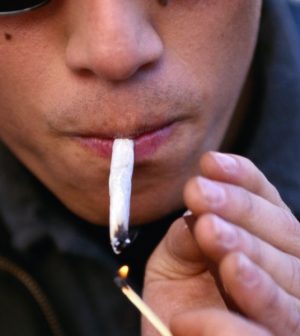- Could Your Grocery Store Meat Be Causing Recurring UTIs?
- Are You Making This Expensive Thermostat Error This Winter?
- Recognizing the Signs of Hypothyroidism
- 10 Strategies to Overcome Insomnia
- Could Artificial Sweeteners Be Aging the Brain Faster?
- Techniques for Soothing Your Nervous System
- Does the Water in Your House Smell Funny? Here’s Why
- Can a Daily Dose of Apple Cider Vinegar Actually Aid Weight Loss?
- 6 Health Beverages That Can Actually Spike Your Blood Sugar
- Treatment Options for Social Anxiety Disorder
Is Your Child Using Drugs?

Mood swings and sudden changes in behavior can be a normal part of growing up, often starting in the tween years. But they can also signal substance abuse.
They’re among the signs that parents should look for if they’re concerned that their child might be using drugs.
Other signs include sudden changes in his or her relationships with family and friends. The child might stop caring about how he or she looks. Parents might notice changes in personal habits, like always locking a bedroom door or going out every night. Money and valuables — or your own pills — may start to disappear from your home. And drug paraphernalia can start to appear — from the obvious, like rolling papers, to strange containers. The child might start having problems at school or work.
Drug use can cause physical signs, too, from a constant runny nose to depression to a dramatic change in weight.
If you think your child may be using drugs, the organization Drugfree.org recommends that parents:
- Closely monitor the child’s behavior and activities.
- Set tighter limits, with clear consequences for breaking house rules.
- Talk to and listen to your child in a calm way.
And remember that you don’t have to go it alone. Get outside support and help if you need it. One source of assistance might be your family doctor or your child’s pediatrician.
More information
To learn more, visit the Partnership for Drug-Free Kids.
Source: HealthDay
Copyright © 2026 HealthDay. All rights reserved.










